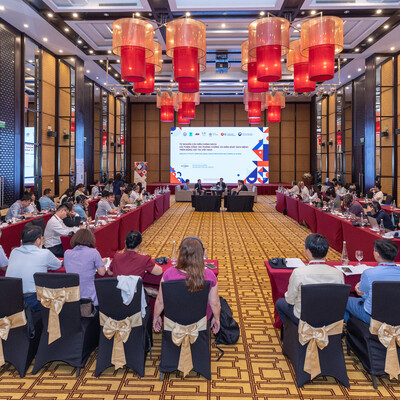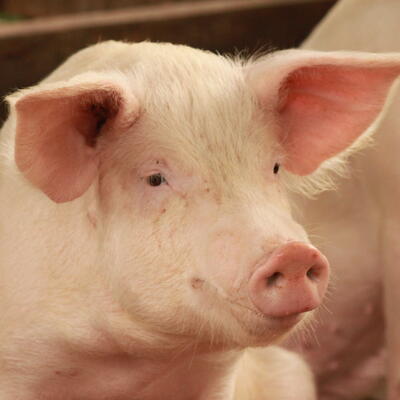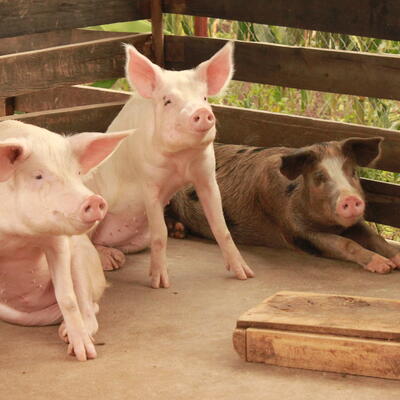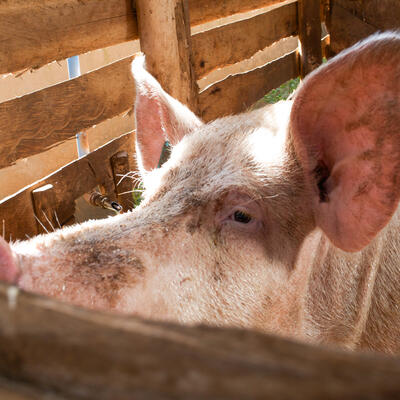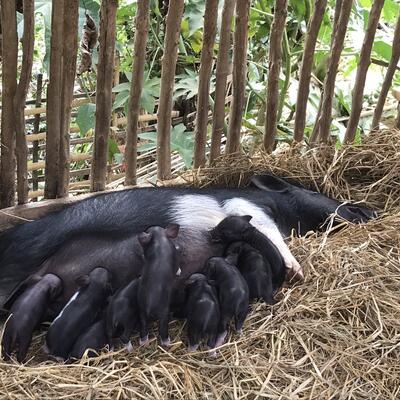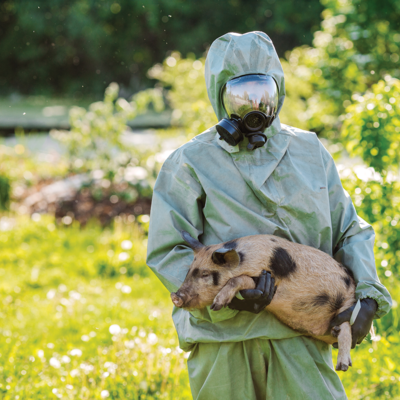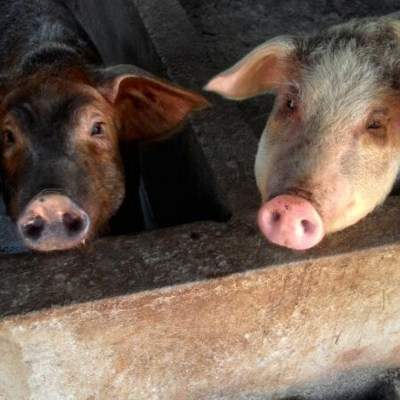
Africa Swine Fever Virus Genome Sequencing to underpin Control
This project will help to design incentives and other actions that will reduce the risks and impact of ASF, benefiting smallholder farmers in more than 20 countries in eastern, central, western and southern Africa. Currently there is no reliable data on total numbers of farmers affected in Africa; this project will provide a better understanding of the impacts for Uganda and Kenya.
The project’s primary geographical focus is in the border region of eastern Uganda and western Kenya. Most people who keep pigs in this region have small mixed farms on which pig-keeping is often an initiative and responsibility of women and youth. A relatively high proportion of women are household heads in the region because mortality due to HIV/Aids has been higher amongst men.
This project led by the BecA-ILRI Hub in collaboration with CSIRO and funded by AusAID enables an interdisciplinary team of scientists, working with national veterinary officers and ministry staff in Uganda and Kenya, to obtain an in-depth understanding of:
the prevalence and genetic diversity of the virus,
socio-economic impact,
and modes of transmission and spread.
The project team will develop a full picture of how ASF is transmitted based on data obtained from pig blood samples, pig-keeping households and other people involved in the pig market chain. Technologies being used in the project also bring new capability for rapid and accurate diagnosis of infected pigs.
What’s new about this project for Africa is that it combines social and economic research with biological surveillance of viral prevalence and diversity to understand better how the virus spreads.
Household surveys of pig keepers and information from other people in the market chain (eg pig butchers and traders) will enable the project team to learn about the impact of the disease and how pig keeping and trading practices impact on ASF infection and transmission dynamics.
The project will also provide an understanding of farmers’ capacity to adopt simple biosecurity measures –such as restricting access to pigs to all but essential workers, changing or disinfecting footwear on entry and exit to pig production facilities and reducing risks from feed sources –that could reduce the impact of the disease on their own livelihood and in the broader community. Information about these simple measures is not currently readily available to smallholder farmers; the project team will disseminate appropriate information sheets in local languages when conducting household surveys.
This project will help to design incentives and other actions that will reduce the risks and impact of ASF, benefiting smallholder farmers in more than 20 countries in eastern, central, western and southern Africa. Currently there is no reliable data on total numbers of farmers affected in Africa; this project will provide a better understanding of the impacts for Uganda and Kenya.
The project’s primary geographical focus is in the border region of eastern Uganda and western Kenya. Most people who keep pigs in this region have small mixed farms on which pig-keeping is often an initiative and responsibility of women and youth. A relatively high proportion of women are household heads in the region because mortality due to HIV/Aids has been higher amongst men.
This project led by the BecA-ILRI Hub in collaboration with CSIRO and funded by AusAID enables an interdisciplinary team of scientists, working with national veterinary officers and ministry staff in Uganda and Kenya, to obtain an in-depth understanding of:
the prevalence and genetic diversity of the virus,
socio-economic impact,
and modes of transmission and spread.
The project team will develop a full picture of how ASF is transmitted based on data obtained from pig blood samples, pig-keeping households and other people involved in the pig market chain. Technologies being used in the project also bring new capability for rapid and accurate diagnosis of infected pigs.
What’s new about this project for Africa is that it combines social and economic research with biological surveillance of viral prevalence and diversity to understand better how the virus spreads.
Household surveys of pig keepers and information from other people in the market chain (eg pig butchers and traders) will enable the project team to learn about the impact of the disease and how pig keeping and trading practices impact on ASF infection and transmission dynamics.
The project will also provide an understanding of farmers’ capacity to adopt simple biosecurity measures –such as restricting access to pigs to all but essential workers, changing or disinfecting footwear on entry and exit to pig production facilities and reducing risks from feed sources –that could reduce the impact of the disease on their own livelihood and in the broader community. Information about these simple measures is not currently readily available to smallholder farmers; the project team will disseminate appropriate information sheets in local languages when conducting household surveys.








